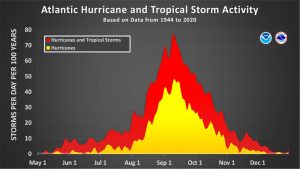The United Nations said Monday it expects the world’s population to reach 8 billion on Nov. 15th this year – and it projects that India will replace China as the world’s most populous nation next year.
The report, released on World Population Day, said global population growth fell below 1% in 2020 and is growing at its slowest rate since 1950.
According to the latest U.N. projections, the world’s population could grow to around 8.5 billion in 2030, 9.7 billion in 2050, and a peak of around 10.4 billion people during the 2080s. It is projected to remain at that level until 2100.
Along with India, over half of the world’s population growth between now and 2050 will likely come from seven countries: The Democratic Republic of the Congo, Egypt, Ethiopia, Nigeria, Pakistan, the Philippines and the United Republic of Tanzania.
U.N. Secretary-General Antonio Guterres called 2022 a “milestone year” with “the birth of the Earth’s eight billionth inhabitant.”
The report, World Population Prospects 2022, put the population at 7.942 billion and forecast it will reach 8 billion on November 15th.
“This is an occasion to celebrate our diversity, recognize our common humanity, and marvel at advancements in health that have extended lifespans and dramatically reduced maternal and child mortality rates,” Guterres said in a statement. “At the same time, it is a reminder of our shared responsibility to care for our planet and a moment to reflect on where we still fall short of our commitments to one another.”
Along with the decline in global population growth came a decrease in fertility across much of the world – nearly 66% of the global population lives in an area with fertility roughly around the levels “required for zero growth in the long run, for a population with low mortality,” per the report.
The global COVID-19 pandemic also decreased the average life expectancy to 71 years, down from 72.9 in 2019. By 2050, the U.N. report projects the average life expectancy will reach 77.2 – but also noted that the makeup of the general population will likely be older come that same year, with the number of individuals over the age of 65 projected to be more than twice the size of the population under five years old.
“Further actions by Governments aimed at reducing fertility would have little impact on the pace of population growth between now and mid-century, because of the youthful age structure of today’s global population,” John Wilmoth, director of the Population Division of the U.N. Department of Economic and Social Affairs, wrote in a statement. “Nevertheless, the cumulative effect of lower fertility, if maintained over several decades, could be a more substantial deceleration of global population growth in the second half of the century.”
The world last hit its 7 billion population milestone in 2011, per the United Nations, and the report notes that the “same concerns and challenges raised 11 years ago remain or have worsened: Climate change, violence, discrimination.”
The earth also reached another “grim” milestone in May, the U.N. noted: 100 million people displaced worldwide, an uptick driven, in part, by the millions of people who have either fled Ukraine in the months since Russia’s invasion or the millions more internally displaced within the country due to the conflict.




